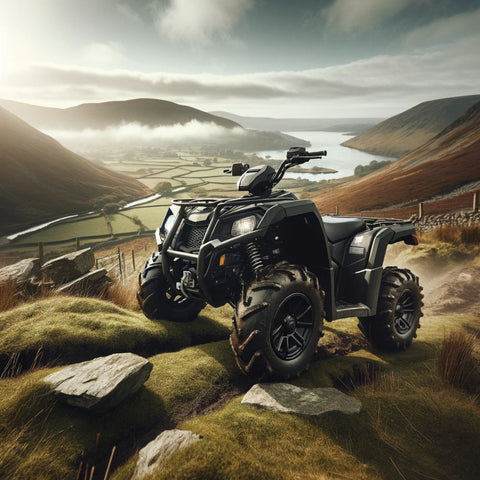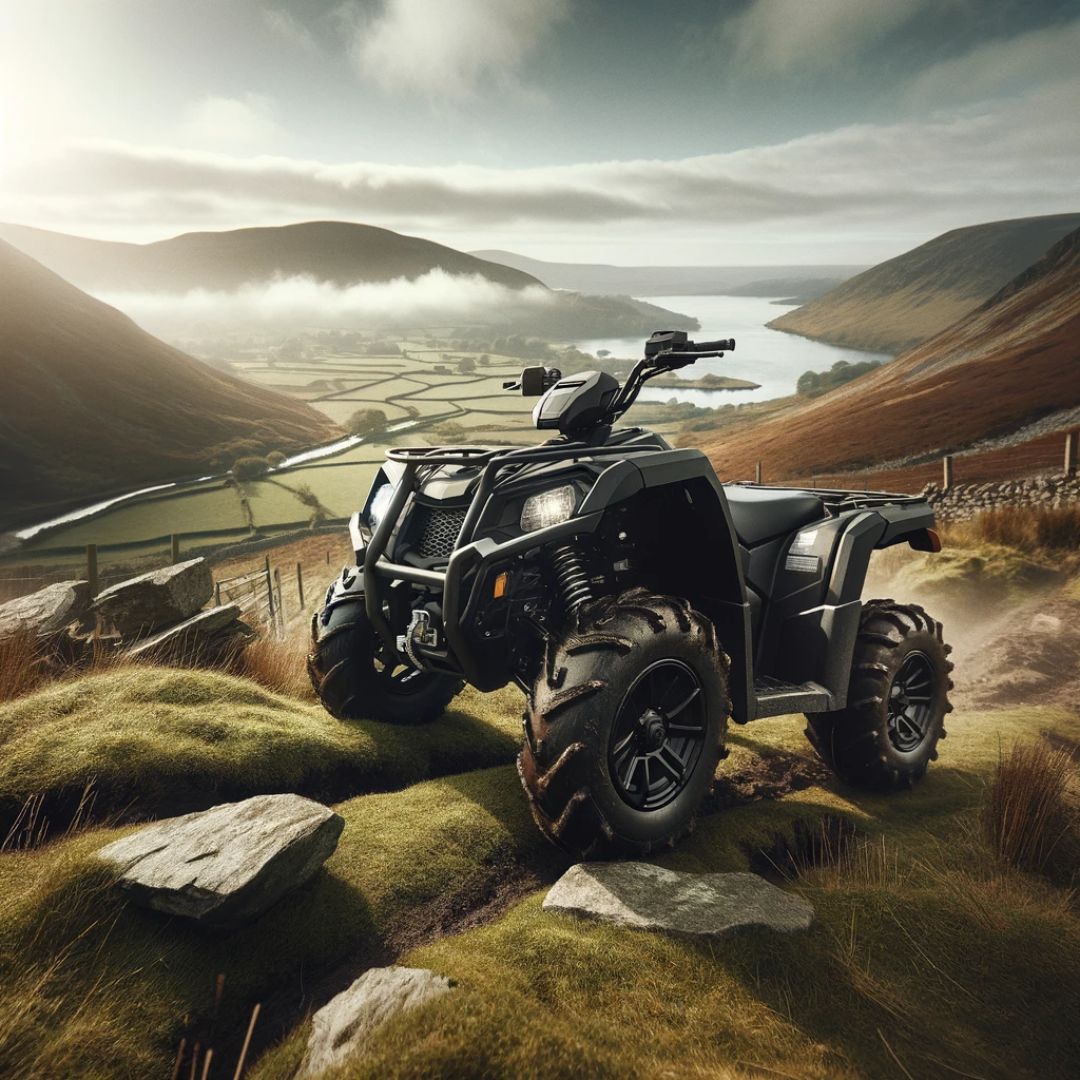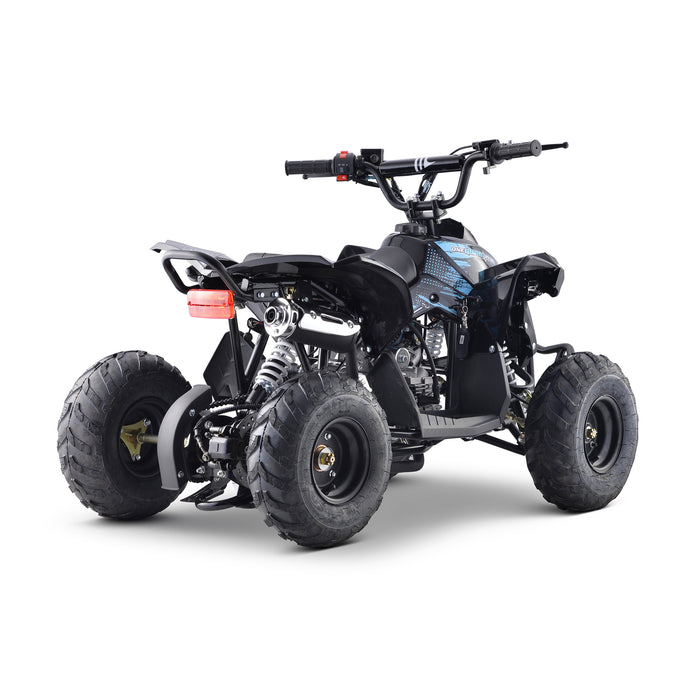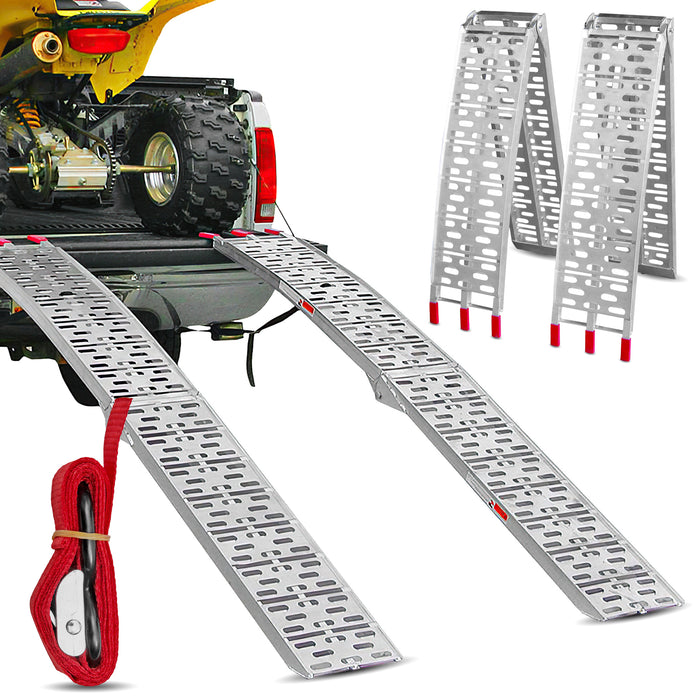
Published: 12 January 2024
Updated: 24 March 2025
Quad bikes offer a thrilling mix of adventure and utility, popular for both recreation and work.
However, their growing use comes with important legal and safety considerations.
This guide breaks down UK quad bike laws, safety protocols, and best practices for responsible riding.
Understanding Quad Bikes
Quad bikes are versatile all-terrain vehicles used for farming, off-road adventures, and more.
Understanding their legal use is key to safe and compliant riding.
Related: The Ultimate Buyer's Guide to Kids Quad Bikes
Safety Gear and Training
Essential Safety Gear
Before riding any quad bike—whether a traditional ATV, eco rider, or electric model—gearing up for safety is crucial.
- Helmet: Use a DOT or ECE-approved full-face helmet for maximum protection.
- Eye Protection: Wear goggles or a visor with anti-fog and UV protection.
- Gloves: Choose sturdy gloves with reinforced palms for grip and safety.
- Clothing: Opt for long pants and sleeves made of durable materials like leather.
- Boots: Wear over-the-ankle boots with good tread for foot protection.
Training Importance
Training from a certified instructor, such as through the ATV Safety Institute, is essential for safe quad bike operation.
It covers riding techniques, hazard recognition, and legal requirements, benefiting both new and experienced riders.
Age Restrictions and Requirements
On-Road
In the UK, you must be at least 17 and hold a full car license (category B or B1) to ride a quad bike on public roads.
The bike must be road-legal, meaning it’s registered, taxed, and has a valid MOT if required.
Off-Road
Off-road on private land, there’s no specific age limit, but riders under 13 cannot drive or ride as passengers.
Those 13 and older must have formal ATV training and use an appropriately sized bike.
Agricultural Use
For agricultural use on private land, the same age guidelines apply, but road use requires compliance with on-road regulations.
| Use Case | Minimum Age | License Requirement |
|---|---|---|
| On-Road | 17 | Full car license (B or B1) |
| Off-Road (Private Land) | 13 | None, but training recommended |
| Agricultural (Public Road) | 17 | Full car license (B or B1) |
Legal Restrictions for Quad Bike Use
Riding Responsibly
Reckless riding, like performing stunts, can lead to legal issues and endanger others.
Riding on public roads without registration, tax, MOT, or insurance is illegal.
Where Not to Ride
Quad bikes are prohibited on paved roads, council land, public parks, footpaths, or bridleways unless designated for such use.
Legal Penalties
- Uninsured Riding: £300 fine, 6 penalty points, and possible vehicle seizure.
- Non-Road-Legal on Roads: Fines up to £1,000, penalty points, or disqualification.
- Underage Riding: Fines and points for the responsible adult.
Insurance Requirements
On-Road: Third-party insurance is mandatory for road use, with penalties for non-compliance.
Off-Road: Insurance isn’t required but recommended for protection against theft or damage.
Agricultural Use: Third-party insurance is needed for road use, even briefly crossing public roads.
Related: The 10 Best Places to Ride Your Quad Bike in the UK
General Safety Guidelines
Passenger Safety
Never exceed the quad bike’s passenger limit to ensure safety and comply with legal guidelines.
Consistent Safety Practices
Always wear a helmet and protective gear, regardless of whether you’re on a traditional or electric quad bike.
Transportation of Quad Bikes
Loading and Unloading
Follow safety guidelines when loading and unloading your quad bike to protect yourself and the vehicle.
Choosing the Right Trailer
Use a dedicated trailer and ramp to ensure secure transportation.
Conclusion
Quad biking offers excitement and utility, but it requires adherence to UK laws and safety protocols.
Stay informed, ride responsibly, and enjoy the journey safely!
FAQ’s
What’s the minimum age to ride a quad bike on UK roads?
You must be at least 17 and hold a full car license (category B or B1) to ride on public roads.
Can kids ride quad bikes off-road in the UK?
Children under 13 cannot ride or be passengers; those 13 and older need formal ATV training.
Is insurance required for off-road quad biking in the UK?
No, but it’s recommended for protection against theft, fire, or damage.
What are the penalties for riding a quad bike without insurance on UK roads?
You face a £300 fine, 6 penalty points, and possible vehicle seizure.
Where can’t I ride a quad bike in the UK?
Quad bikes are prohibited on paved roads, council land, public parks, footpaths, or bridleways unless designated.
Ready to Ride? 🚀
Loved our 2025 guide on quad bike laws?
Explore more at RiiRoo.com or chat live with us!










Share:
Dirt Bike Riding in London: 4 Awesome Trails to Try
Should I Buy My Kid a 2 or 3-Wheeled Scooter?